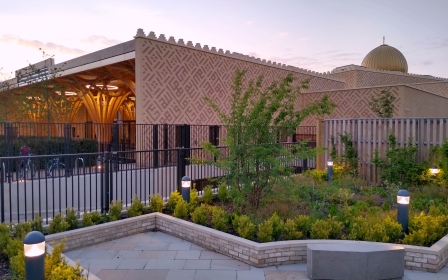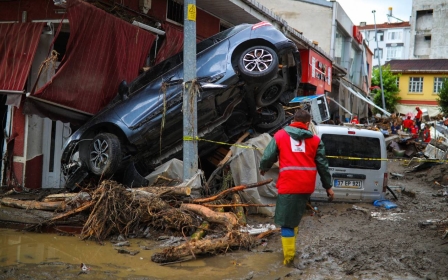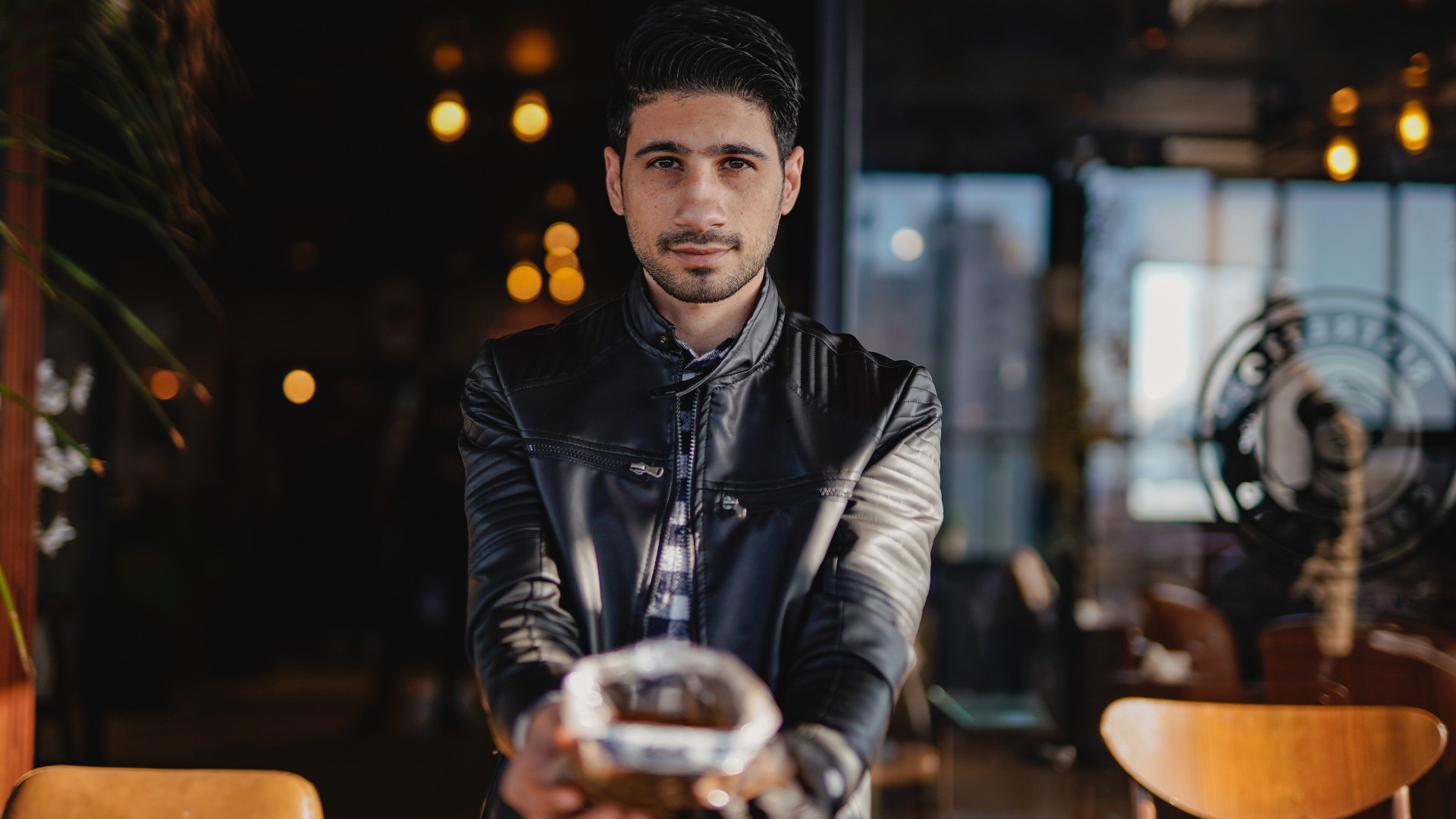
In pictures: Turning coffee waste into natural fertiliser in Gaza

It’s no secret that much of the Middle East population are avid coffee lovers. Coffee is served on the table at breakfast, during special occasions, as well as in times of mourning. It's the one consistent thing across all social events.
The love for coffee has only increased in recent years, as more cafes are popping up around the region. Gaza is no different, with the population consuming more than five to six tonnes of coffee a day.
Abdallah el-Safady, 32, is the executive director of Ristretto Coffee Lab, located in Gaza City. While the cafe serves everything from chocolate-drenched baked cheesecakes, bubble tea, and lattes decorated with art, it is best known for its classic coffee, and being environmentally conscious. (All photos by Ahmed Alnadaf)
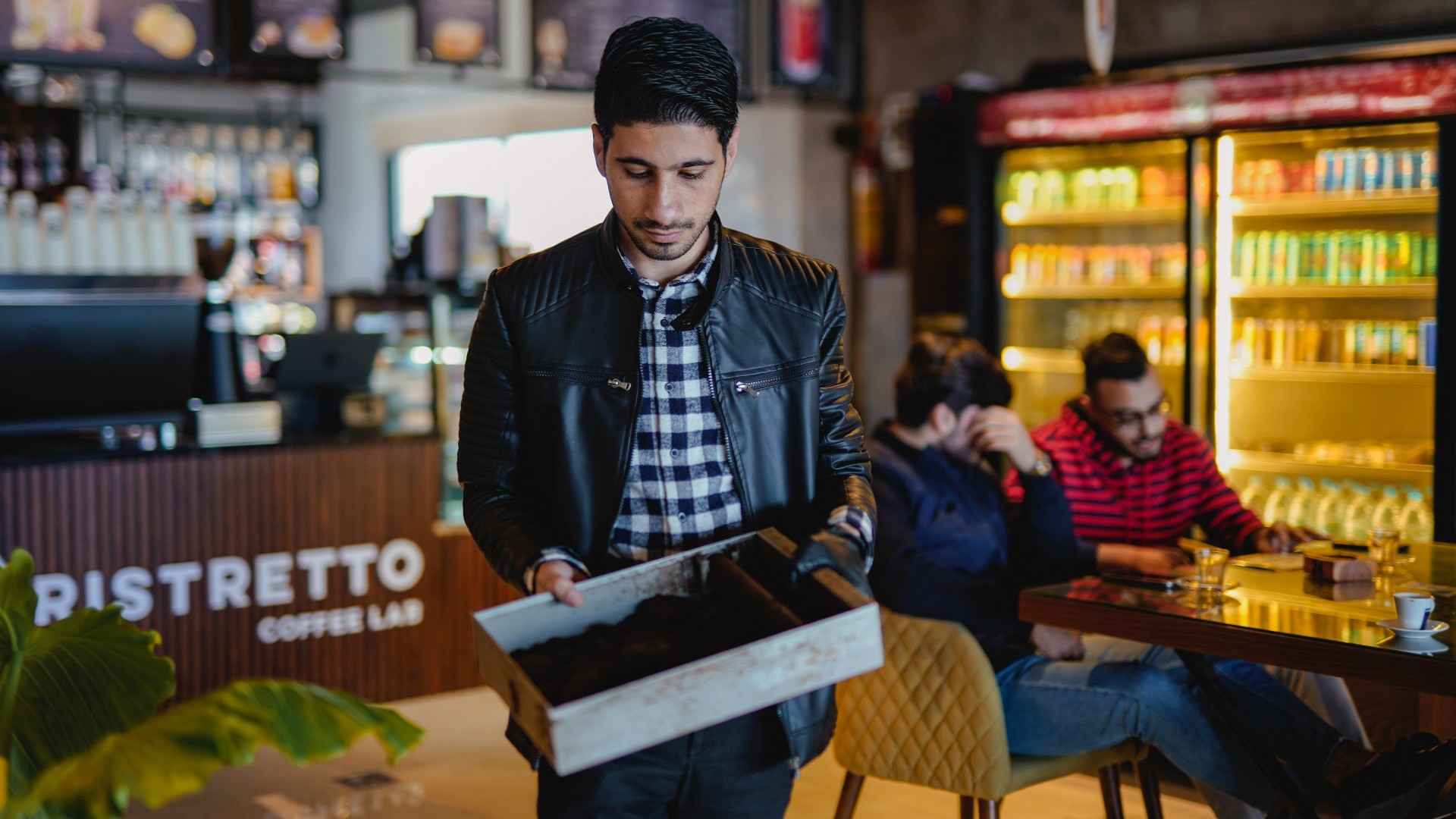
“In Ristretto cafe, there are around ten kilos of waste coffee a day, so imagine the amount of waste from all of the cafes around Gaza,” Safady tells Middle East Eye.
Safady’s ambition is to make his cafe completely environmentally friendly in the coming months, and in the process, encourage others to do the same.
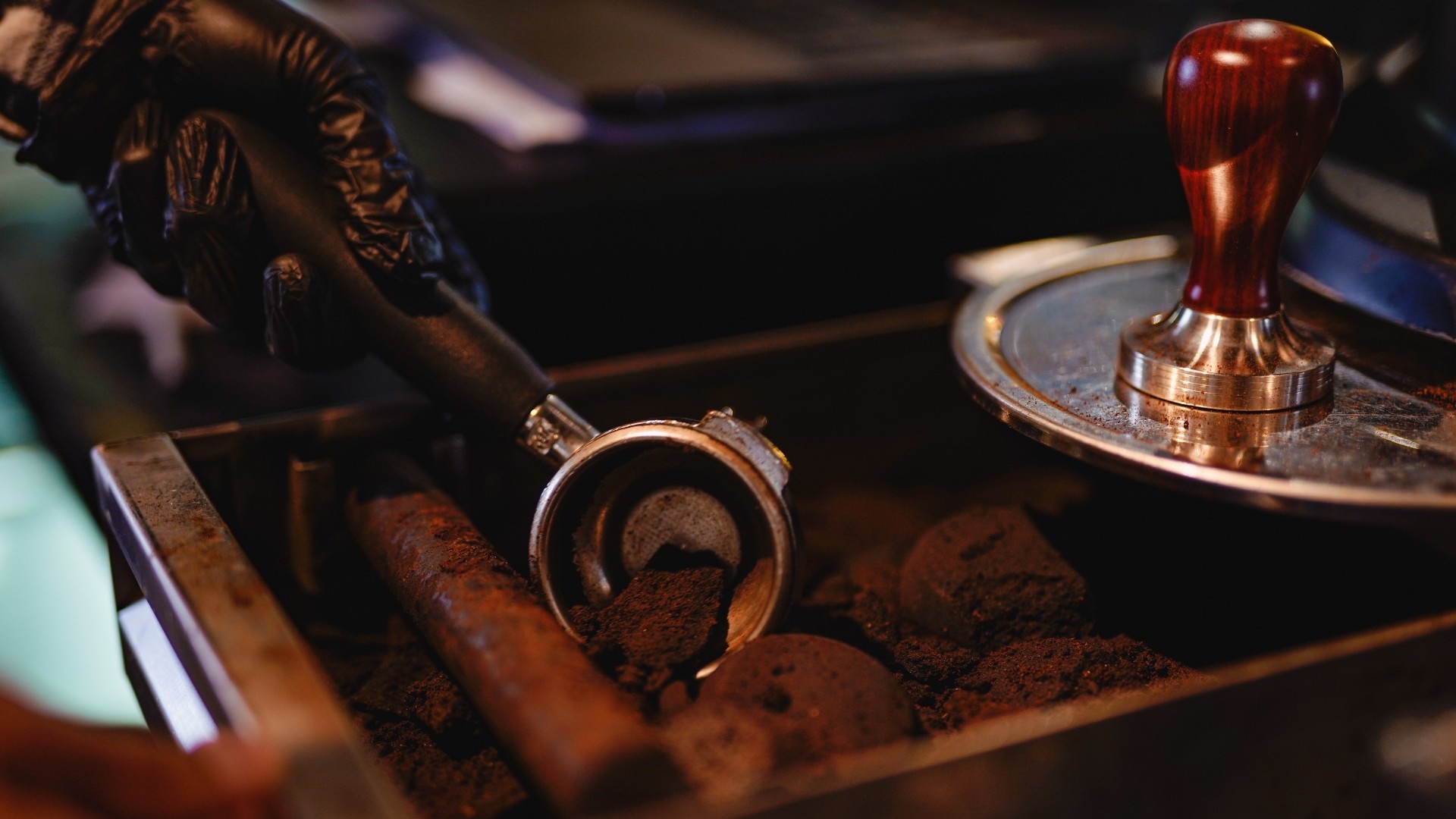
The cafe has become a popular spot amongst locals, who often come to the cafe to work on laptops or hold meetings. Due to the amount of waste produced, Safady was eager to find more environmentally conscious solutions.
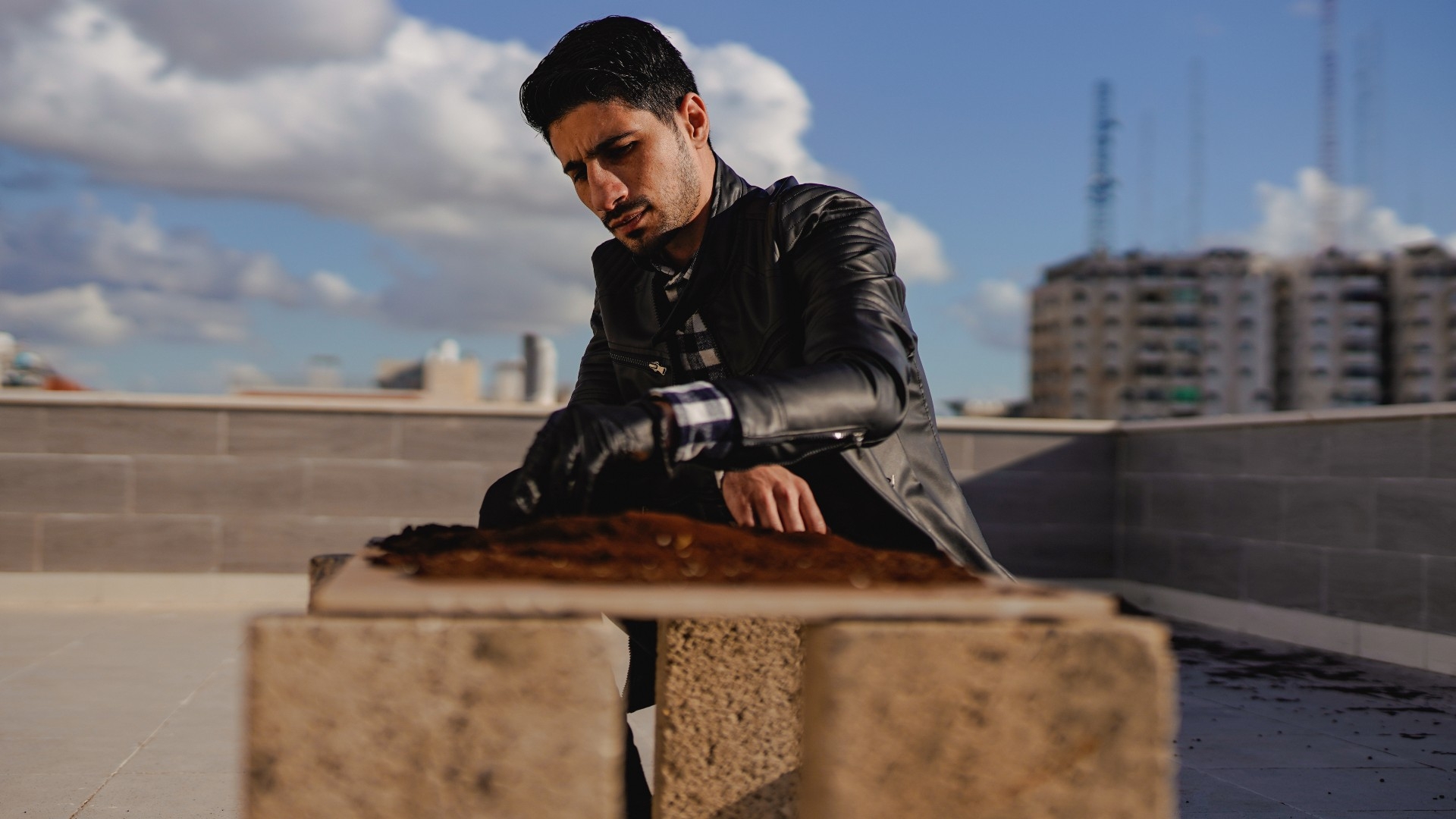
In his cafe, Safady turns waste coffee into natural fertiliser and soil supplements, something he decided to do after consulting with researchers and agricultural engineers over several months.
The process involves collecting coffee dregs, or residue and grains left at the bottom of coffee, and leaving it out in the sun to dry. The coffee waste can then either be used for lemon and orange trees, and it can also be mixed with agricultural fertiliser.
According to Safady, the coffee waste, which is rich in magnesium, potassium and nitrogen, all improve the soil quality. The coffee waste is also used for irrigating flowers by adding water to the dry coffee waste and leaving it for two to three days until it becomes amber in colour. The liquid that forms is then used for the irrigation of flowers.
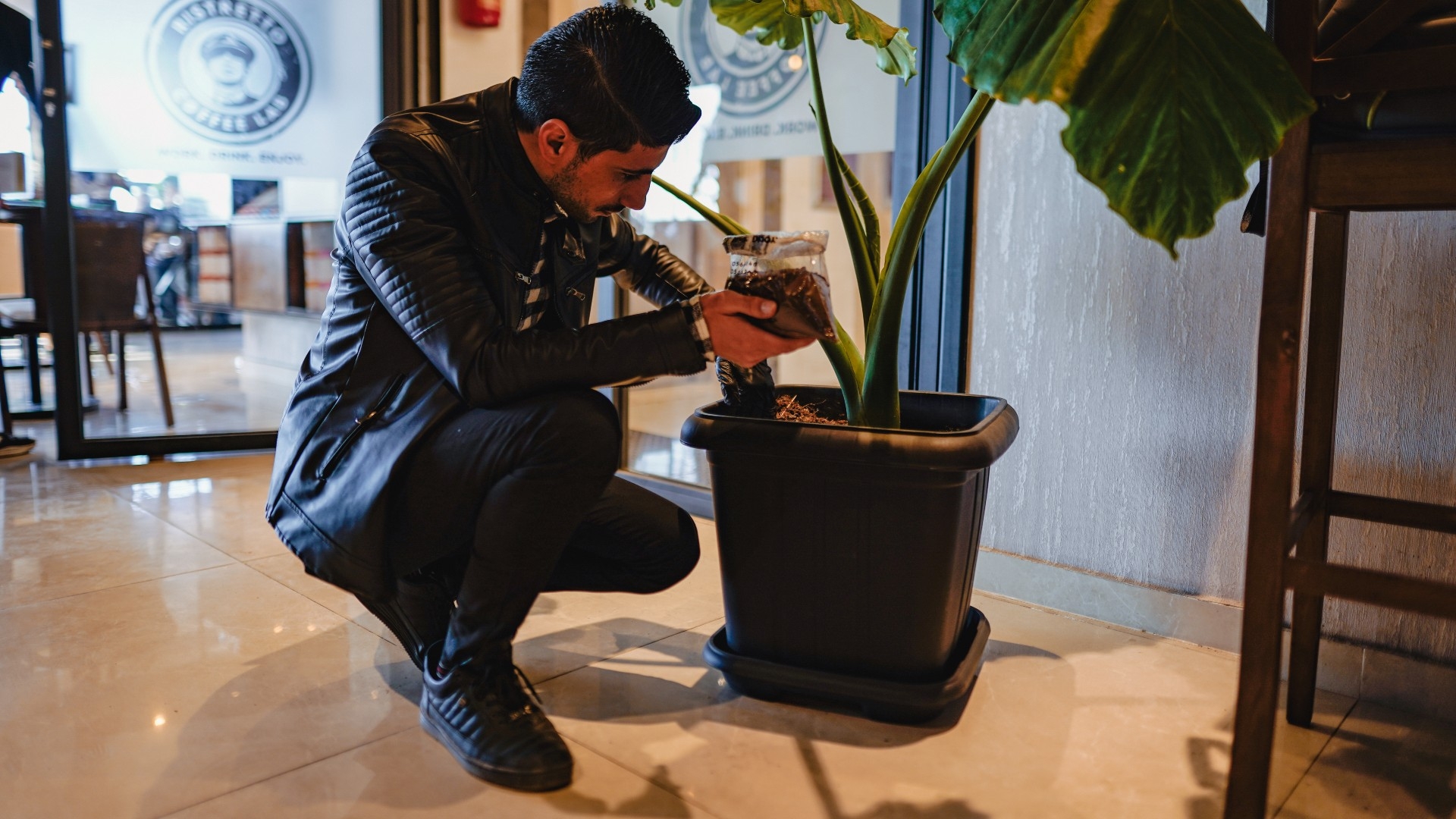
Safady explains the importance of being environmentally friendly. “It’s our duty to preserve and protect the environment for upcoming generations.”
In his cafe, Safady ensures that the majority of materials and tools that are used are eco-friendly. All cups are recycled and he also serves many drinks and desserts in wafer cups that can be eaten, to avoid using more cups.
Due to the Israeli occupation's restrictions on Gaza, Safady is forced to import environmentally friendly cups and tools. "I have to get a lot of materials from abroad because they aren't available in Gaza due to Israel's blockade," he explains.
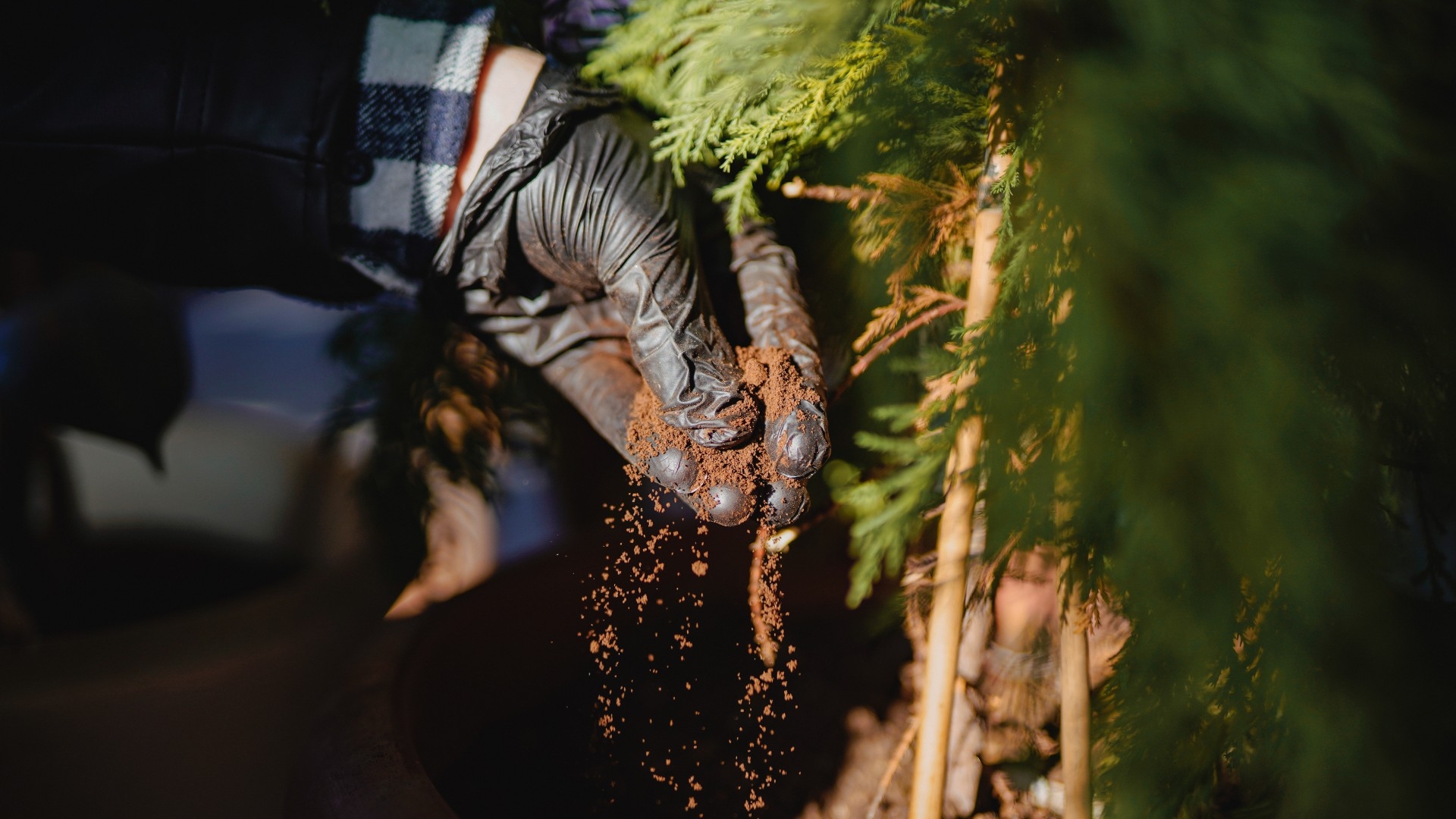
Today, the cafe is brimming with plants and flowers which use the soil which has been enriched with the coffee waste fertiliser. The greenery in the cafe has made it a bright and vibrant space, which many customers refer to as the "green zone".
According to Safady, using coffee waste on plants also deters the growth of weeds and pests while encouraging healthy growth. However, he explains, the trick is to not use huge quantities of coffee waste, so it doesn't create a water-resistant barrier.
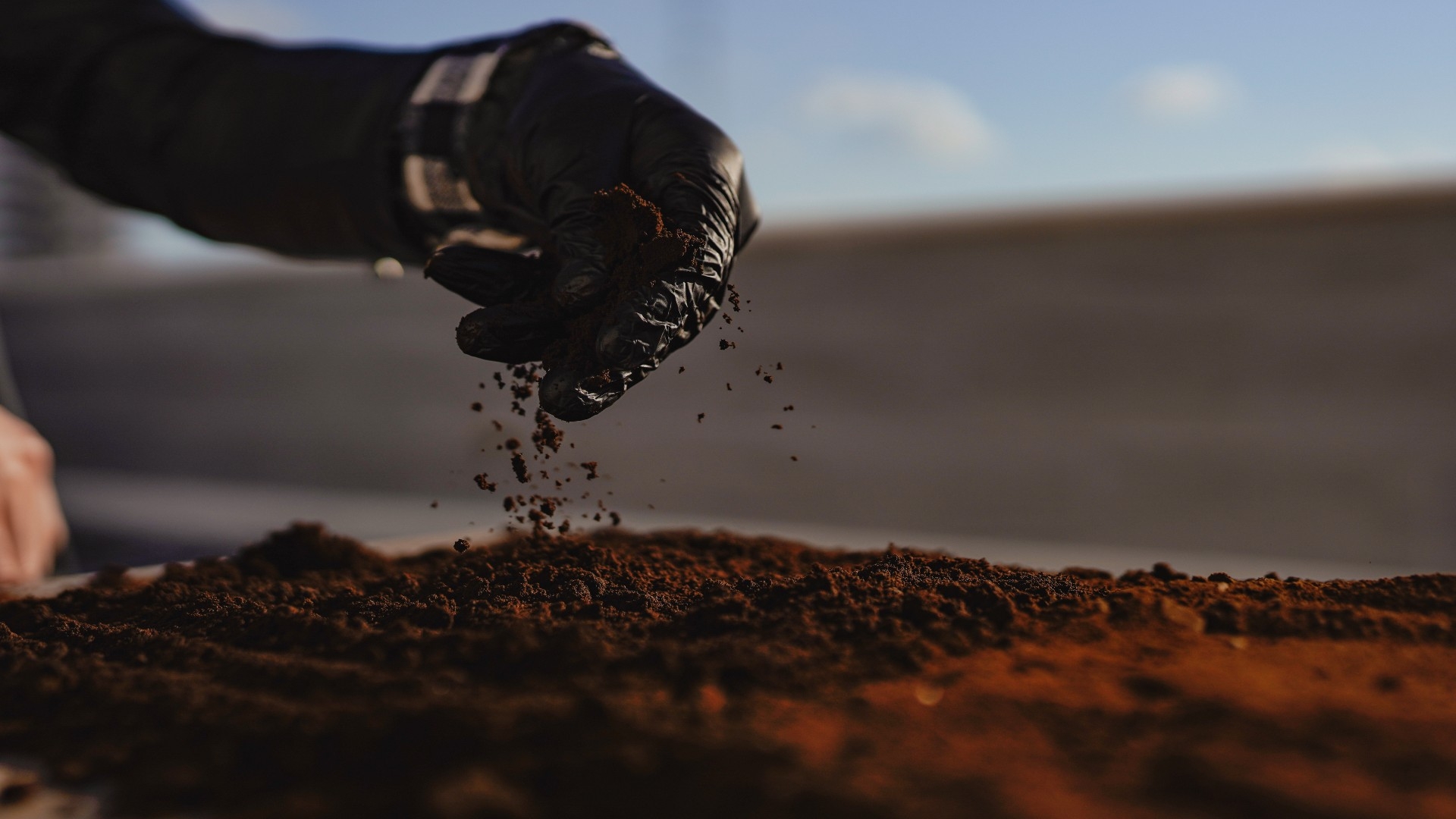
The initiative at the cafe has started to inspire others to follow in its footsteps. “There’s a cafe owner in Hebron that has approached me seeking advice about the steps on how to turn coffee waste into natural fertiliser,” Safady says.
In an effort to expand his initiative, Safady hopes to gather coffee waste from surrounding cafes, turn it into fertiliser and distribute it amongst farmers to help them with their crops.
Middle East Eye propose une couverture et une analyse indépendantes et incomparables du Moyen-Orient, de l’Afrique du Nord et d’autres régions du monde. Pour en savoir plus sur la reprise de ce contenu et les frais qui s’appliquent, veuillez remplir ce formulaire [en anglais]. Pour en savoir plus sur MEE, cliquez ici [en anglais].


